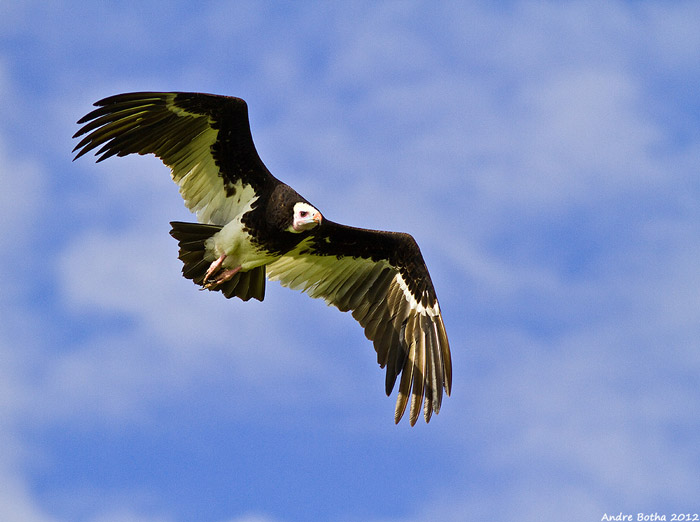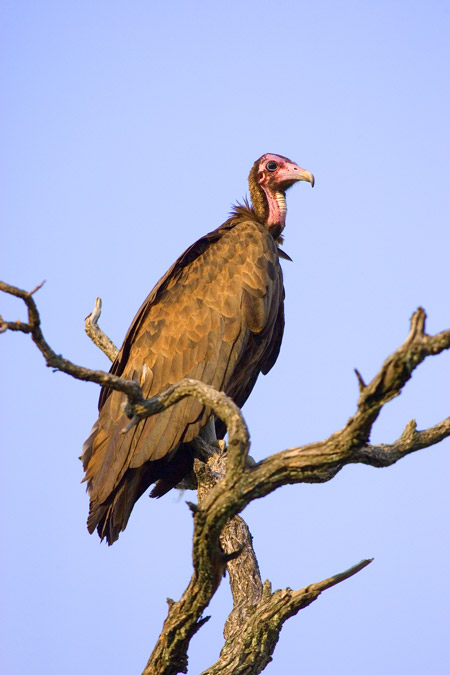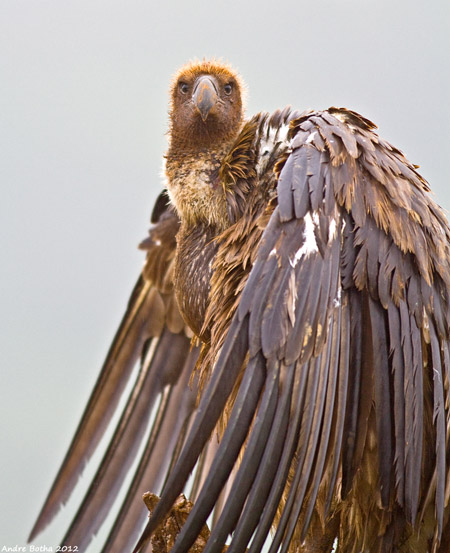An international research team suggests that African vultures will likely qualify as ‘Critically Endangered’ under the International Union for Conservation of Nature’s global threat criteria. Written by: Andre Botha, Manager of the EWT’s Birds of Prey Programme and Co-chair of the IUCN SSC Vulture Specialist Group
In a report published in the scientific journal Conservation Letters, scientists from across Africa, Europe and North America have published the first estimates of decline rates in African vultures on the continent. Their findings show that many national parks and game reserves offer little effective protection to African vulture species.

Scavengers such as vultures are essential to a healthy ecosystem. Without them, carcasses would be largely consumed by scavengers such as dogs and jackals, which could increase levels of disease transmission with possibly dire consequences for human health.

Dr Ralph Buij of Alterra Wageningen University highlighted that: “the trade in vulture parts for traditional medicine is particularly widespread in West Africa, where vultures are openly traded at large markets, especially in Nigeria and Benin. As vultures remove large amounts of pathogen-infested meat and other waste products each day, they limit disease spread in rural and urban areas. Ironically, therefore, the trade of vultures for traditional medicine may, in fact, enhance the spread of disease.”

As long-lived, slow breeders, vultures take several years to reach maturity and typically fledge only a single offspring every one to two years. Yet the study indicates that Africa’s vultures are declining at between 70% and 97% over three generations, a time interval used by the International Union for Conservation of Nature (IUCN) when assessing a species’ threat status. Since six of the eight species are largely or wholly confined to Africa and are projected to decline by at least 80% over three generations, the study suggests that they are likely to qualify as ‘Critically Endangered’ under the IUCN’s global threat criteria.

Dr Darcy Ogada of The Peregrine Fund, National Museums of Kenya, and lead author of the study said: “Large declines of African vultures should ring alarm bells due to their immense ecological importance. Vultures are vital to a healthy environment, especially in Africa, where ‘free’ ecosystem services such as disposing of carcasses and other waste products remain the norm. If we don’t take urgent steps to save these birds, particularly to curtail wildlife poisoning, we should expect long-term consequences for the environment and humans in Africa. What makes our results so concerning is that national parks and game reserves appear to offer these birds very little effective protection. Because vultures are mobile and can easily travel hundreds or thousands of kilometres, decline rates were worryingly high even within protected areas.”

The study’s authors highlight two important distinctions between the Asian vulture crisis and that in Africa. Firstly, the decline rates evident in Africa have been substantially lower than in Asia to date, affording African governments a window of opportunity to head off the environmental consequences of a collapse.
Secondly, while Asian vultures have declined largely due to ingesting the anti-inflammatory drug, Diclofenac, African vultures face multiple threats. They include incidental and deliberate poisoning, the illegal trade in vulture body parts for traditional medicine, killing for bushmeat, mortality caused by power lines and wind turbines, and a reduction in habitat and food availability.

The study suggests that poisoning is the greatest quantifiable threat to Africa’s vultures, accounting for 61% of all reported deaths. African vultures are often the unintended victims of poisoning incidents, in which carcasses are baited with highly toxic agricultural pesticides to kill livestock predators. However, the study also shows that the recent rapid increase in elephant and rhino poaching throughout Africa has led to a surge in the number of vulture deaths recorded, as carcasses have been poisoned specifically to eliminate vultures, whose overhead circling might otherwise reveal the poachers’ illicit activities.

Dr Ogada added, “The situation requires the resolution of a number of environmental and cultural issues. We propose a range of measures, including more effective regulation of importing and selling agricultural and other chemicals commonly used as poisons. This would benefit not just vultures but all species widely targeted by pastoralists and poachers in Africa.”

According to Dr Munir Virani, the Africa Program Director for The Peregrine Fund, “Saving African vultures from extinction will require unstinting support from African governments. In addition, outreach programs geared toward pastoral communities in East Africa will be critical in ensuring that they perceive vultures as a vital and integral component of ecosystems and economies”.
To comment on this story: Login (or sign up) to our app here - it's a troll-free safe place 🙂.![]()








